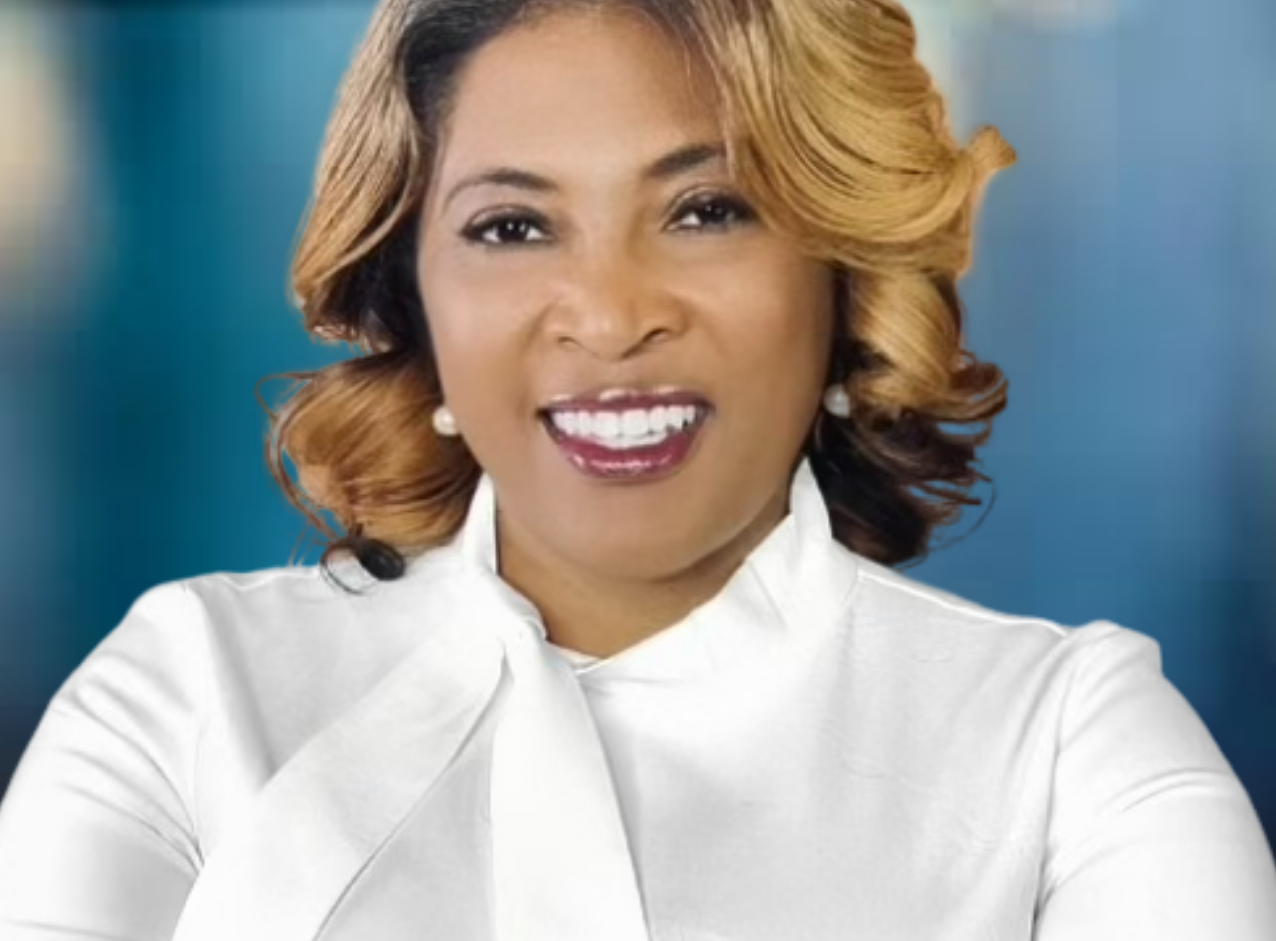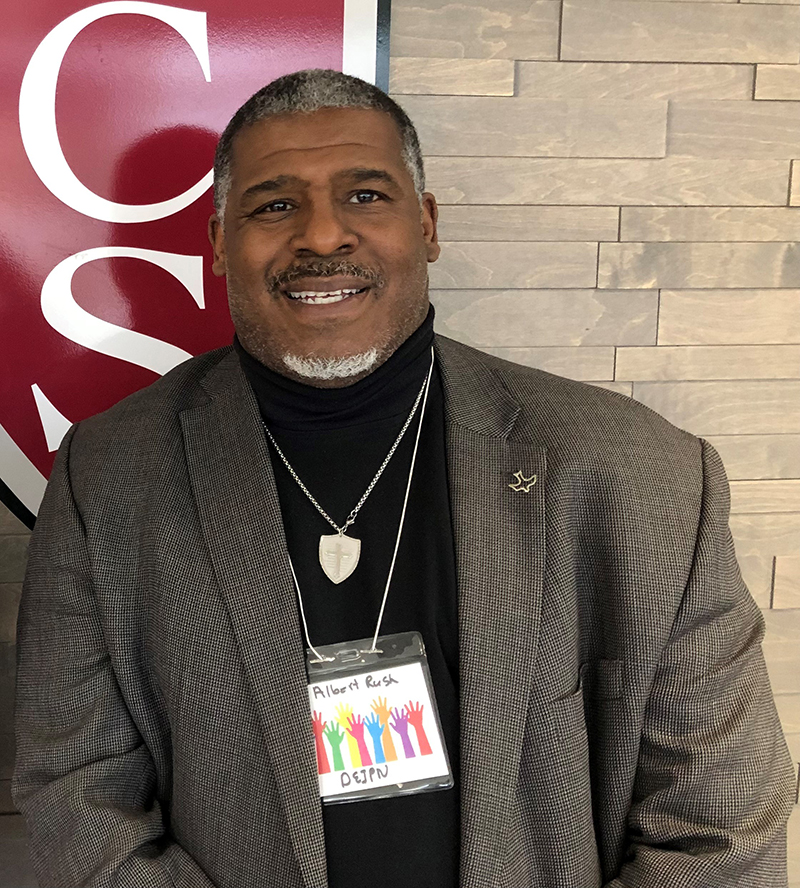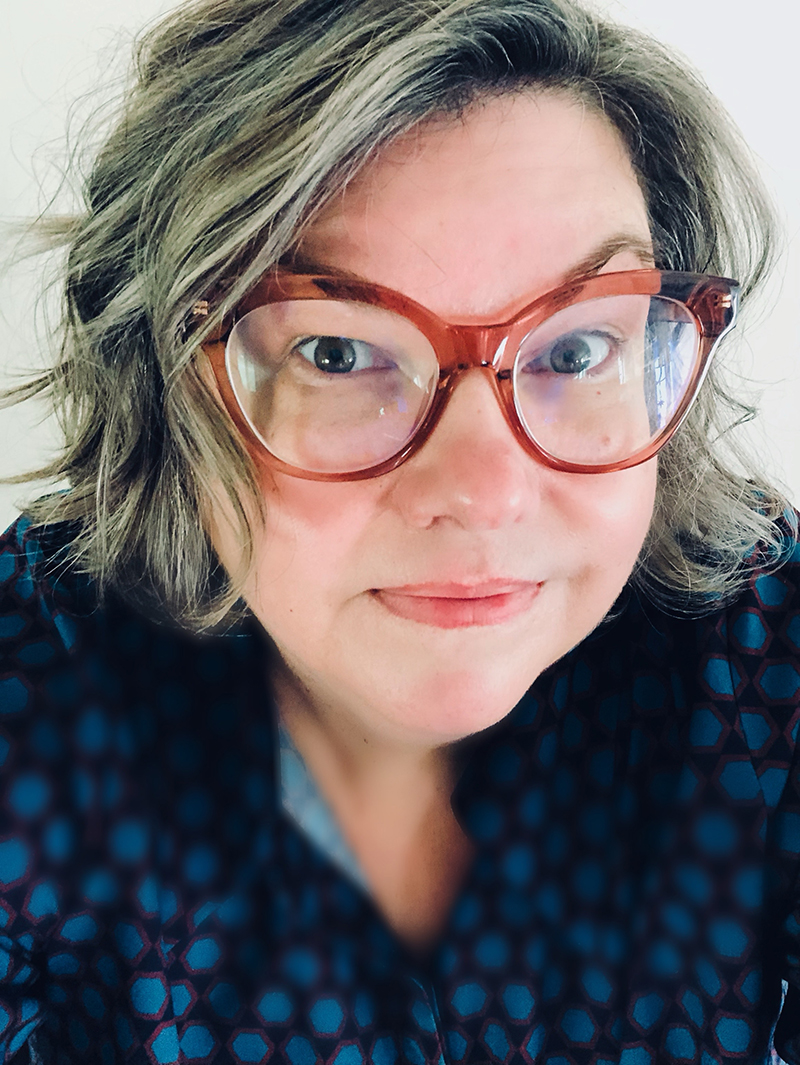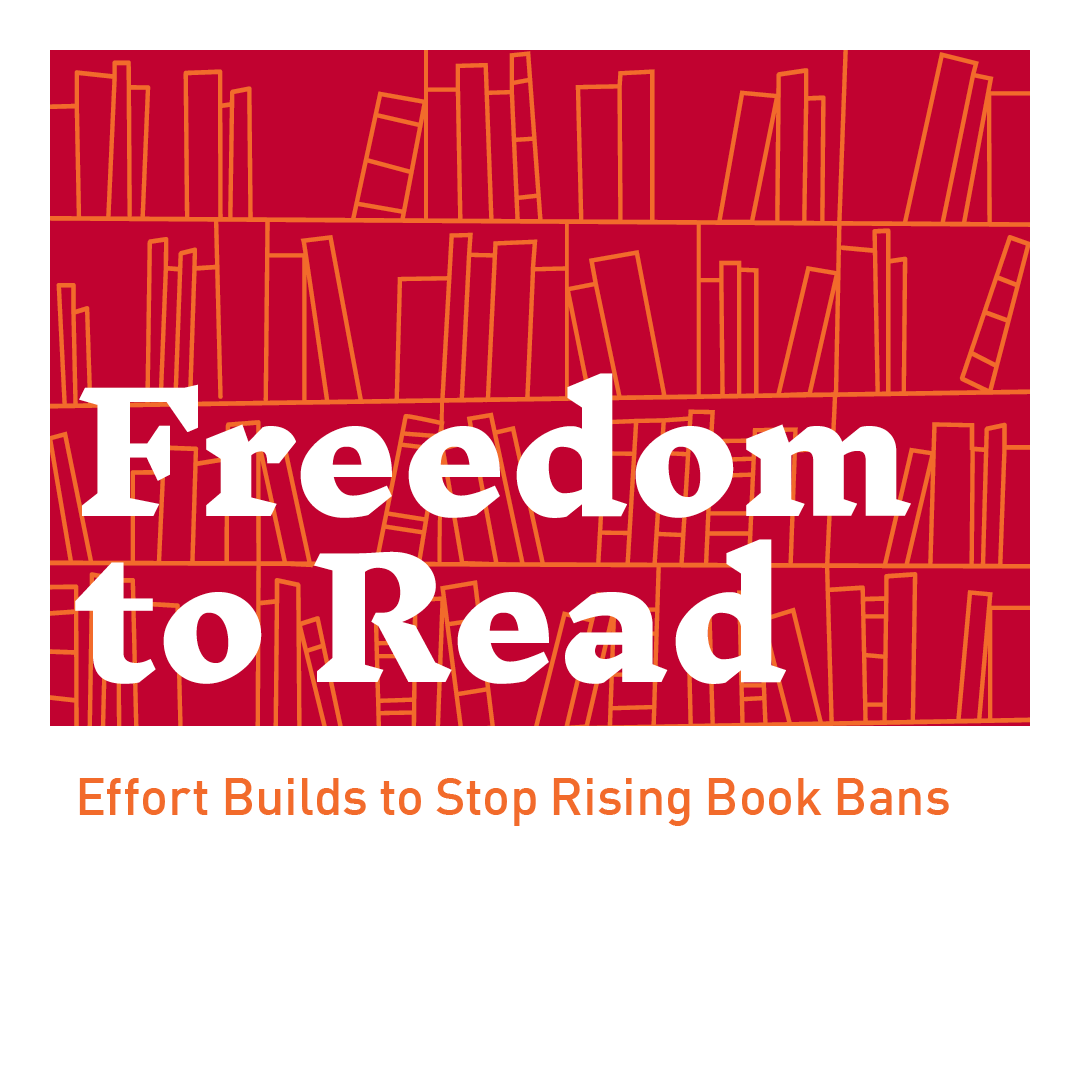Freedom to Read Advocates, Please Stand Up: ‘We need positive voices in the conversation’

Part 5 of our 5-part “Freedom to Read” series
By Brenda Ortega, MEA Voice Editor
Michigan Education Association
Near the end of May two members of the Michigan State Board of Education proposed a resolution seeking to criminalize the work of teachers, librarians and administrators who allow students to read library books deemed “inappropriate” by would-be censors.

In a 4-2 vote the panel rejected the idea to urge criminal prosecutions of educators for “disseminating sexually explicit materials to minors” as some library books and reading selections are perceived by a small-but-vocal minority of book banning proponents.
“When will it stop?” asked Dr. Pamela Pugh, vice president of the State Board, in a statement she read at the meeting. “We must refuse to compromise here, especially when it means compromising to or bargaining with hate.”
Calls to jail educators are happening alongside a dramatic rise in book challenges and censorship across the country documented over the past year by the American Library Association (ALA) and PEN America – a century-old organization of writing professionals dedicated to free expression.
Books targeted for removal largely address issues of race, gender, and social justice featuring authors, characters and themes from marginalized racial, ethnic and LGBTQ communities. Those seeking to ban books often bypass local school district procedures for challenging reading materials and bring grievances to the school board in lengthy and vitriolic public comment sessions.
The movement to restrict access to books in Michigan schools has included the filing of police reports against educators and threats on social media to initiate supposed citizens’ arrest of librarians. Bills to allow related criminal prosecution of educators have been introduced in several states.
The proposed State Board resolution sought to encourage such legislation in Michigan. A second resolution offered by the board’s two Republican members – also voted down – would have encouraged continued book challenges at public schools.
“What I want known is that when members of the board push back on this rhetoric and propaganda, we carry the voices of parents who are opposed to this behavior,” Pugh said. “We hear from parents who see this national agenda for what it is, and we take up the fight along with them.”
While the State Board resolution was unlikely to pass, its introduction furthers an election-year goal to manufacture division and sow conflict, Pugh said. For example, groups behind the nationwide censorship push will use it to claim Pugh is against parents’ rights or the board majority favors pornography in schools.
“The purpose is to get media attention and to be able to say things that aren’t true,” she said. “But if we’re not careful, their strategy is to slow-walk their way to eventually be able to do some of these things we’re talking about.”
A study published in January by researchers at UCLA – “The Conflict Campaign” – drew similar conclusions about forces stirring backlash against so-called “Critical Race Theory” or “CRT,” a higher education concept of historical inequities in the U.S. which has been “caricatured” and distorted in order to stir controversy.
“The anti-‘CRT’ effort is a purposeful, nationally/state interconnected, and locally driven conflict campaign to block or restrict proactive teaching and professional development related to race, racism, bias and many aspects of proactive diversity/equity/inclusion efforts in schools, while – for some – gaining political power and control,” the study said.
“Refusing the conflict campaign’s efforts to divide them, educators, students, and parents will need to unite the majority of Americans around a clear vision of public schools where everyone is treated like they belong and matter, and where historical facts and real experiences of opportunity barriers in our actual country are discussed accurately and with nuance so we can together create a country that works for everyone,” the study’s authors concluded.

Albert Rush, a parent who has volunteered on a Diversity, Equity and Inclusion committee in Rochester Community Schools, said uniting the community around ensuring all students feel welcome and safe has been the committee’s goal over the past five years.
The group’s work took on new urgency after a 2018 incident in which a Black 14-year-old Rochester High student who missed the school bus and knocked on a neighbor’s door to ask for directions was accused of being an intruder, had a gun pulled on him, and heard shots fired as he ran.
A Black pastor whose son is a high schooler in the district, Rush said he has thought about quitting the committee because of ongoing scattered opposition, but he stayed after a friend of his son thanked him for his work and his visibility on important issues, he said.
Last month, the school board adopted the committee’s equity statement – developed over the past year – which lays the foundation for a five-year equity and inclusion plan.
“Some people want to say what we’re trying to do is about CRT. It has nothing to do with that. We just want to make sure it’s a safe environment for all children and to make sure educators have the cultural competency to know how to deal with children from all types of backgrounds,” Rush said.
The conflict campaign and the enormous spike in book challenges nationwide has operated next to efforts by state lawmakers in many GOP-controlled legislatures – including Michigan – to pass dangerous so-called “gag orders” restricting educators’ ability to speak about certain subjects in K-12 schools and higher education classrooms.
Since January 2021, 183 bills have been introduced in 40 state legislatures targeting educators’ speech surrounding issues of race, gender identity and sexual orientation, according to tracking by PEN America. Of those, 19 have become law in 15 states. Four other states have enacted gag orders via policies or executive orders.
Another bill being debated in the Michigan Legislature, House Bill 5722, would require schools to make all lesson plans, reading materials, writing assignments and more available to the public by the first day of school every year or risk 5% of their state funding.
The sponsor of that bill, state Rep. Gary Eisen (R-St. Clair Township), said in a statement to Michigan Advance in April that the bill is “based on transparency and to bridge the relationship between the schools and parents.”
“While using taxpayer dollars, it is important to show how those funds are spent and to give parents the opportunity to review what their children will be learning,” Eisen said.
In reality that bill – strongly opposed by educators across the state – plus other manufactured controversies in schools, are cynical ploys to create division at a time when young people are relying on the work of educators more than ever, said MEA President Paula Herbart.
“When politicians attempt to sow division by calling into question educators’ motives and professionalism, it’s our children who suffer,” Herbart said. “At this time, with students’ mental health and academic needs soaring, we need community voices of support to join us. Young people deserve access to ideas, freedom to read and engage in honest conversation, and fully resourced schools in every community.”
Individuals and community groups have begun pushing back against book bans and other attacks on freedom to teach, learn and read in Michigan.
Alyssa Arnemann helps to lead a group in Forest Hills, a Grand Rapids suburb, that formed to present a counter narrative to book bans. She worries about educators self censoring or leaving the district in the face of demands from the same small group of protesters at every school board meeting.
“At least parents are finally speaking up to show that these people don’t speak for everyone, and in fact some of them don’t even have children in the district,” said Arnemann, who has one middle schooler and two high school students in Forest Hills schools.
In Freeland, between Saginaw and Midland, Amy Worden is a white mother and corporate attorney who began attending school board meetings to offer opinions that other parents she knows agree on but don’t want to voice for fear of backlash or retaliation.
“I want to model that for my son who is biracial and who very much identifies as Black, and I want to model that for other kids in the community,” said Worden, who recently spoke up at a board meeting in favor of preferred pronoun use in classrooms.
“How can I expect your child to grow up to be a person who can be inclusive if they’ve never been exposed to other groups who have different experiences?” she said. “How can I expect your white child to be compassionate about what my Black child experiences on a daily basis if you don’t allow your white child to engage in conversation or to read books?”
From a similar vantage point, Gayle Martin – a retired educator who started Free to Read Rochester which quickly attracted 200 members opposed to book bans – says the vocal minority is pushing a narrative that doesn’t represent traditional conservative values.
“I’ve always known Rochester is a pretty conservative, pretty traditional community in general, and I was always sensitive to that in my classroom,” she said. “But I also know that Rochester is – for want of a better word – a nice community. Neighborly. Friendly. People are polite. They come out and support their school teams.
“We are not a community that is hateful, and we’re not a community that wants to exclude people.”

Although Martin says she’s never been one to casually talk politics, since taking on an advocacy role in her community she has been deeply moved by friends, neighbors, acquaintances, book club buddies – even long-graduated former students – reaching out to inquire how they can help.
“It almost makes me cry right now,” she said of the response from former students in particular. “These are successful people out in the world doing great things, and they still cared enough about their school, their home, about literature and reading to say ‘No. That’s not right.’ And that is very inspiring to me.”
Martin’s co-leader of Free to Read Rochester and fellow MEA-Retired member, Emily Sommer, agrees. But she worries that with everything school administrators have on their plates right now, they don’t have the ability to focus on staunchly defending books and intellectual freedom against attacks.
“It’s going to have to be teachers; it’s going to have to be parents. It’s important to know that people are networking across the country around this issue, and they’re getting organized, that we are not alone and we can do this.
“We need positive voices in the conversation to show that this is not normal. This is not our community, and it’s not who we want to be.”




